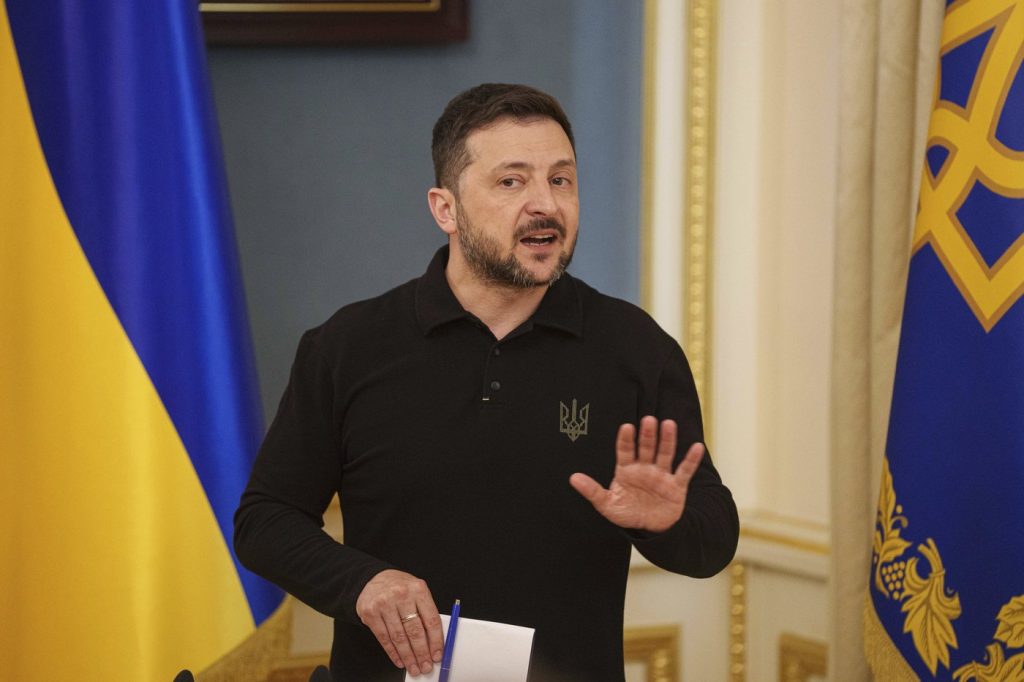LONDON (AP) — Diplomats and defense chiefs from Britain, the United States, European nations, and Ukraine are scheduled to meet in London on Wednesday to facilitate discussions aimed at achieving a peace deal between Moscow and Kyiv. British Defense Secretary John Healey emphasized that the gathering of foreign ministers and national security advisers follows recent talks in Paris, marking an essential step in exploring potential ceasefire arrangements and securing long-term peace solutions.
Among those in attendance is retired Lt. Gen. Keith Kellogg, who served as President Donald Trump's envoy for Ukraine and Russia. The U.S. State Department has announced that Secretary of State Marco Rubio, who participated in the Paris discussions, will not be present due to scheduling conflicts.
While Britain has tempered expectations regarding significant breakthroughs from this meeting, officials stress the importance of persistent diplomatic efforts to end the over three years of conflict that has ensued since Russia's full-scale invasion of Ukraine. Trump indicated last week that negotiations appear to be "coming to a head," warning that the U.S. might "take a pass" if either party fails to move towards a peaceful resolution.
Rubio has voiced concerns that the U.S. may soon withdraw from negotiations if advancements are not made, suggesting that the outcomes of Wednesday's discussions could be vital in determining the extent of the Trump administration's continued engagement. In related developments, Putin's foreign affairs adviser, Yuri Ushakov, mentioned that U.S. special envoy Steve Witkoff's anticipated visit to Moscow later this week could offer additional insights, though no further information was disclosed.
Western analysts assert that Moscow is not in a hurry to finalize peace talks, given its current battlefield momentum and its aspirations to secure additional Ukrainian territories. Prime Minister Keir Starmer's spokesman, Dave Pares, noted that the responsibility for progress lies with Russia, calling for President Vladimir Putin to demonstrate a genuine commitment to peace.
Ukrainian President Volodymyr Zelenskyy indicated on Tuesday that Ukraine's delegation heading to the U.K. is authorized to negotiate only for an unconditional or partial ceasefire with Russia, asserting that Ukraine is ready to engage in talks in various formats once a ceasefire is established.
Kremlin spokesman Dmitry Peskov cautioned against the complexity of the settlement issue, stating that it would be unrealistic to impose strict timelines for achieving a viable resolution. Recent interactions have seen both Russian and Ukrainian delegations engage separately with U.S. officials in Saudi Arabia as Trump seeks to fulfill his campaign pledge to end the war.
Amid these diplomatic endeavors, tensions remain palpable. Russia has largely dismissed a U.S. proposal for a complete and immediate 30-day ceasefire by attaching stringent conditions. Putin announced a unilateral 30-hour ceasefire on Saturday; however, both Ukrainian and British officials reported ongoing Russian attacks during this purported pause. Media has yet to confirm the status of any ceasefire along the extensive 1,000-kilometer front line.
Ukrainian and Western officials report that both Russia and Ukraine are simultaneously preparing for the impending spring-summer military operations, indicating that the potential for renewed hostilities remains a significant concern for all parties involved.











